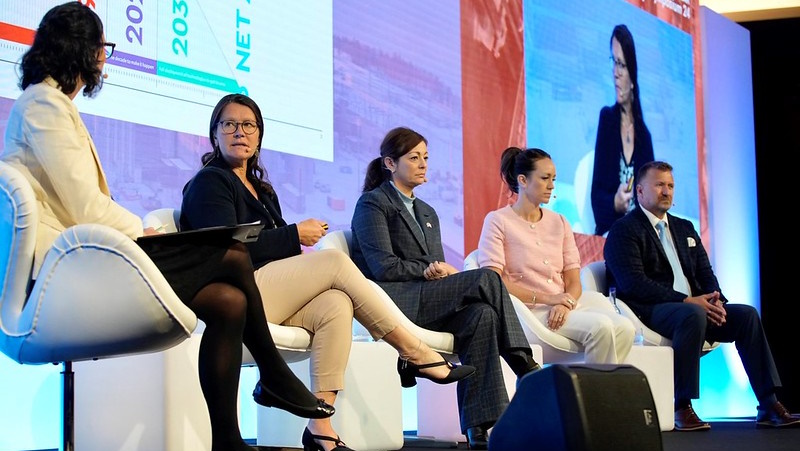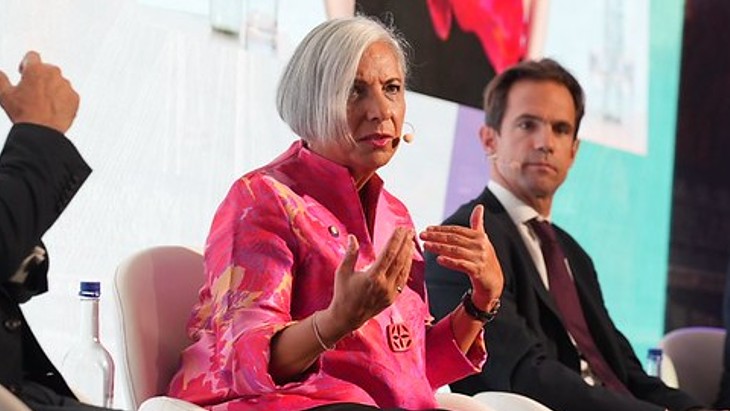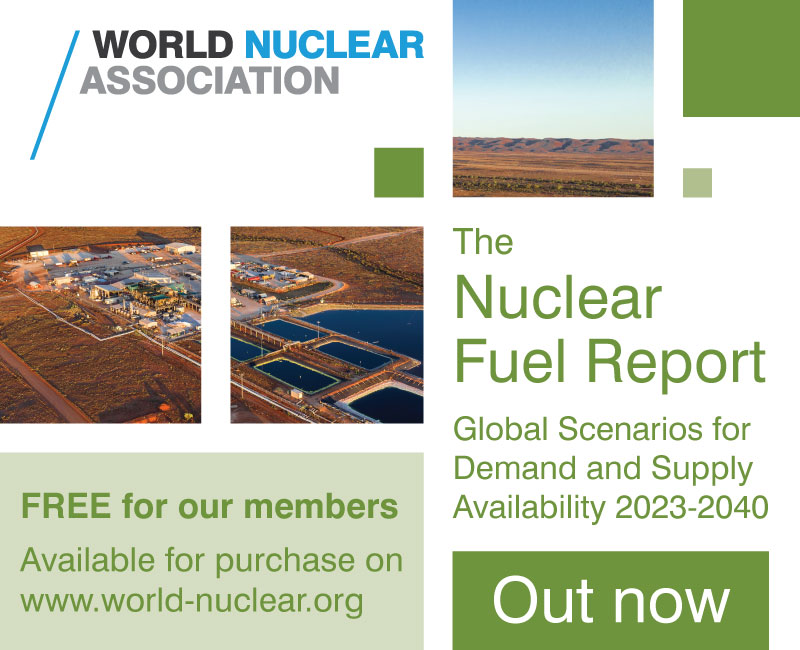Amano notes nuclear's role in sustainable development
 In an address to the United Nations General Assembly yesterday in New York, the director-general of the International Atomic Energy Agency, Yukiya Amano, highlighted the role of nuclear science and technology in sustainable development.
In an address to the United Nations General Assembly yesterday in New York, the director-general of the International Atomic Energy Agency, Yukiya Amano, highlighted the role of nuclear science and technology in sustainable development.In an address to the United Nations General Assembly yesterday in New York, the director-general of the International Atomic Energy Agency (IAEA), Yukiya Amano, highlighted the role of nuclear science and technology in sustainable development.
.jpg) |
| Amano addresses the UN General Assembly (Image: IAEA) |
Amano noted there are currently 450 nuclear power reactors in operation in 30 countries, with a further 60 under construction.
"Nuclear power can make a significant contribution to reducing greenhouse gas emissions and improving energy security, while delivering energy in the large and growing quantities needed for development," he said. "Around 30 developing countries are considering introducing nuclear power. If countries opt for nuclear power, we support them actively at every step of their journey so they can use it safely, securely and sustainably."
Amano said, "There is widespread recognition that the world can never be complacent about nuclear safety and that a robust safety culture must be maintained everywhere." He described the IAEA as "the global platform for strengthening nuclear security".
The IAEA has been celebrating its 60th anniversary this year. Amano noted, "From the 26 countries which had ratified the IAEA Statute when it entered into force in July 1957, we have grown to an organization with 168 member states that spans the globe."
The IAEA implements safeguards in 181 states, 174 of which have Comprehensive Safeguards Agreements in force. "The number of countries with additional protocols in force has risen to 129 today from 93 in 2009," Amano noted.
"Our mission is Atoms for Peace and Development and our membership continues to grow," he told the UN General Assembly. "The agency has helped to improve the health and prosperity of millions of people by making nuclear science and technology available in health care, energy, food and agriculture, industry and other areas."
He said the past 60 years have demonstrated that nuclear science and technology play a significant role in supporting sustainable development. "Today, the agency is active in helping countries to achieve the Sustainable Development Goals, including those concerning poverty and hunger, human health, energy, climate change and the protection of the oceans," Amano said.
On 1 January, the 17 Sustainable Development Goals of the 2030 Agenda for Sustainable Development - adopted by world leaders in September 2015 at an historic UN Summit - officially came into force. Over the next 15 years, with these new goals that universally apply to all, countries will mobilize efforts to end all forms of poverty, fight inequalities and tackle climate change, while ensuring that no one is left behind.
"Improving access to effective cancer treatment in developing countries remains a high priority for the IAEA," Amano said. "Through activities such as our Program of Action for Cancer Therapy, we help countries to devise comprehensive cancer control programs. Real progress has been made in the availability of cancer treatment in recent years in Africa, in particular. New specialist cancer centres have been established. Radiation oncologists and medical physicists are returning home after receiving intensive training abroad with the support of the agency. But the needs remain great and the agency will maintain its focus on cancer control."
Amano highlighted the IAEA's rapid response to recent crises such as the Ebola and Zika viruses. This, he said, demonstrates the agency's ability to successfully manage large-scale projects.
"Since 1958, more than 48,000 scientists and engineers have held fellowships and scientific visitor positions through the IAEA technical cooperation program, both at the agency's laboratories, and in the facilities of our partners around the world", Amano noted. "Many of these scientists and engineers went on to play a key role in building capacity in nuclear science in their countries."
Researched and written
by World Nuclear News


.jpg)










